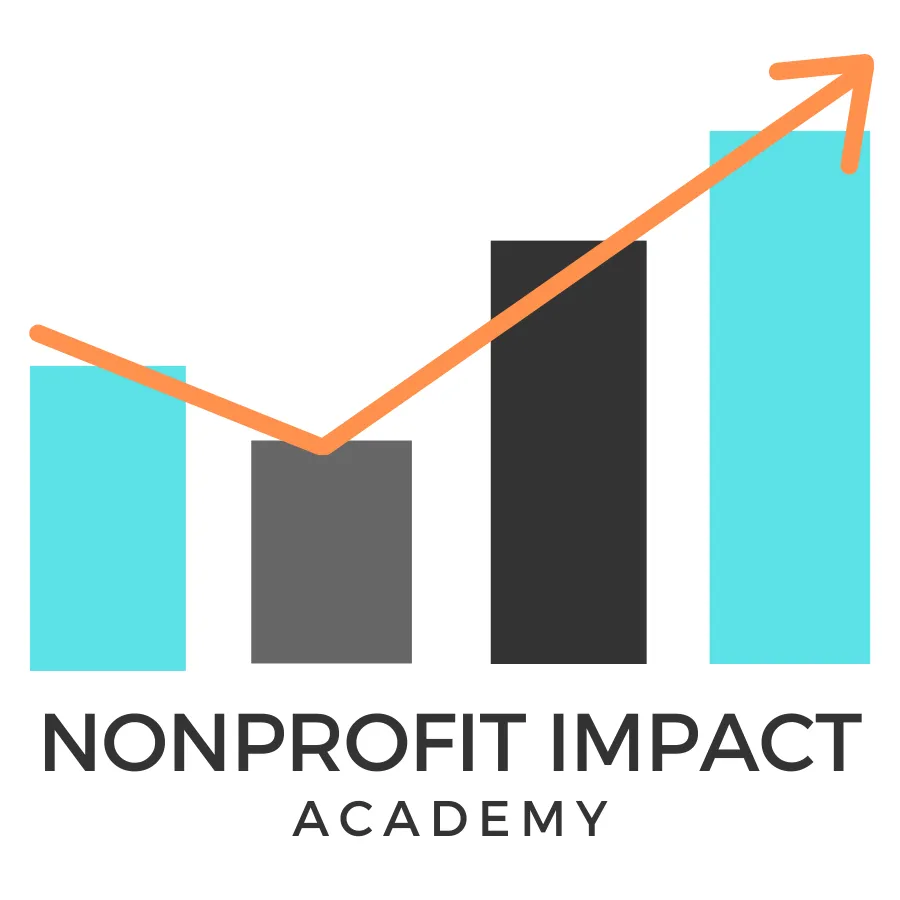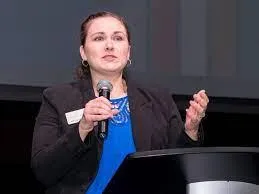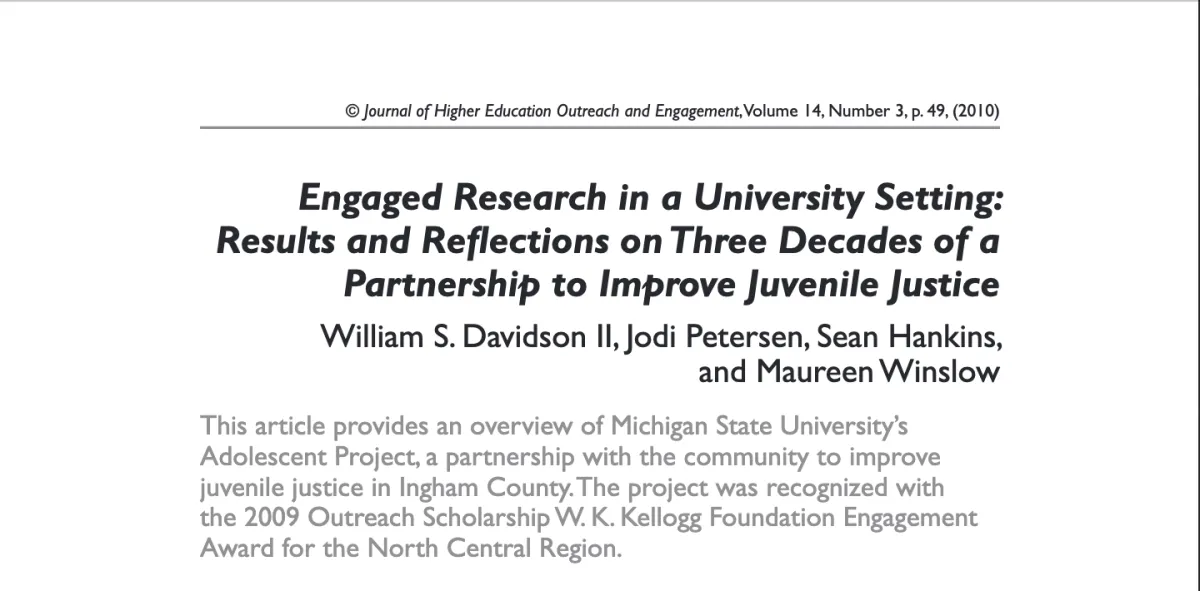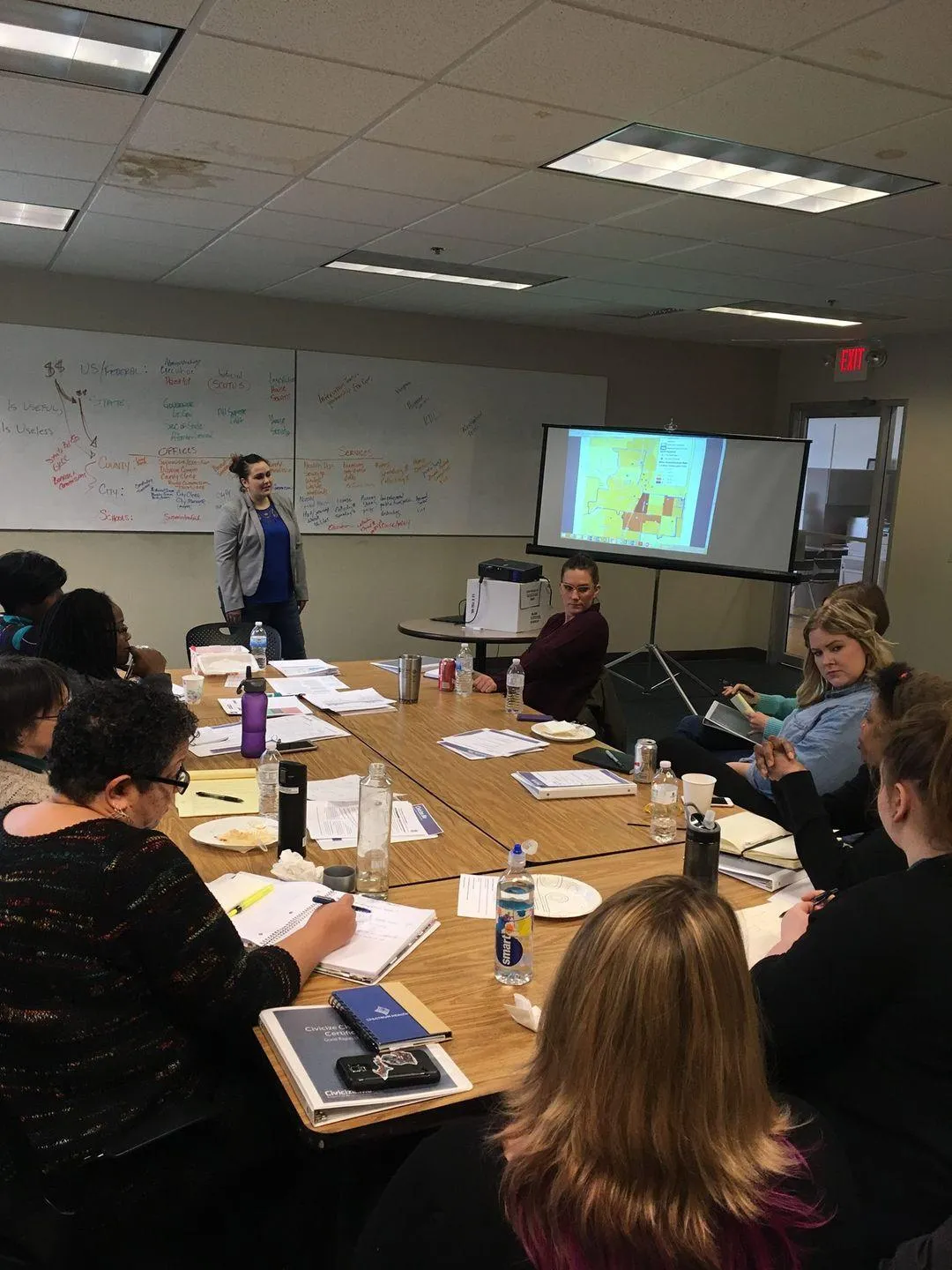The nonprofit sector is driven by people who are committed to making an impact.
Proving your impact is feasible
Even if you have limited staff capacity and data is your nemesis!

"File:2017 Wikimedia Movement Strategy at Wikimania - session 04-01 group discussions - photo 1.jpg" by Abby Walla on behalf of the Wikimedia Foundation is licensed under CC BY-SA 4.0
Most people join the nonprofit or social services sector to make an impact on the world. But still, they find themselves:
- Exhausted with the constant hustle
- Stuck in scarcity mentality
- Unsure about their org's sustainability
- Worried about if they're doing enough
And all of that steals their passion
and pushes them out of the field...
but it doesn't have to!
What if you could demonstrate and increase your impact NOW?
Low burden methods of showing your impact EXIST!
You've heard the anecdotes from clients about the impact your nonprofit's programs have had for them. But what do you do when other stakeholders want to hear more holistic quantitative results?

"Business of Software" by betsyweber is licensed under CC BY 2.0
- You may not have to have a full time dedicated staff to handle data and evaluation.
- You don't have to spend thousands of dollars on data management systems.
It is possible to:
- KNOW your nonprofit is making an impact
- SHOW that impact
- STOP chasing funding that isn't the right fit
- EXPAND your impact
Putting hard numbers behind the experiences and stories will help your nonprofit to:
- Further the mission
- Expand the reach
- Acquire the right funding
- Mobilize community support
- Amplify the community's voice
But still...it feels like it takes time away from the mission. Why spend so much time providing data for funding applications when there’s so much important work to do? Providing data to show impact doesn't have to be a difficult, burdensome process.
Hi! I'm Jodi
The Backstory...
When I started in this work, I wanted to work with people who were incarcerated to help them find success post-release. I quickly saw that individual-level solutions are limited in their effectiveness when individuals are living in oppressive societies.
I saw that in order to make systems change, I needed to speak the language of the power holders.
That language is data.
From there, I've made helping nonprofits measure and increase their impact my life’s work. I hold a PhD in Ecological-Community Psychology, focusing on systems change to improve community outcomes. My team and I have served as external evaluators and community researchers for hundreds of organizations, but we saw a gap in the sector. Nonprofits are stretched. They focus on achieving their mission and keeping enough funding coming through the doors to do so. But often times the skills needed to meet their mission aren't the same as the skills needed to show their impact. By increasing data capacity, nonprofits can better demonstrate their impact and use data for internal continuous improvement processes. This in turn helps funders see a greater impact from their investments.


Have you ever felt like...
"I've seen these amazing results we've had over the years and I can tell stories about every single one of the clients that have been through our program. But people keep saying, "how do I know that you're not just telling me about the ones that have done well?" and I have no response. I don't have the data to show them that we could do more if we could scale up."
Just imagine
Having the information at your fingertips to answer the hard questions posed by your stakeholders while continuously serving the community better.

Help amplify your community's voice
Collecting data on your program's impact isn't just about making your program better or getting more funding. It's also about helping your community tell their stories of strength, resilience, and success.

Provide data about the needs of the community
Understand how to take what you've heard anecdotally, add hard data alongside it, and make it more compelling to those who hold power in your community.

Measure change and progress over time
Figure out what measures of success matter most and track progress on those indicators over time. Use this to inform programming and pivot as needed.
Let the community drive the change and control the narrative. Stop collecting data to chase funding.
Introducing:

A comprehensive course that guides you through
defining, measuring, increasing, and communicating your impact.
What's Inside the Nonprofit Impact Academy?
This Course Will Walk You Through The Practical And Essential Aspects Of Defining, Measuring, Increasing, And Communicating Your Impact.
1
Understanding Community Needs
You'll learn the essential aspects of conducting a program-level community needs assessment. This will include using existing secondary sources of data, collecting new primary data, building stakeholder buy in, and assessing the scope of community needs.
2
Defining Your Impact
Learn how (and why!) to develop an organizational and program theory of change, program logic model. Build on those models to identify appropriate outputs, outcomes, and indicators. You'll learn how to use evaluative thinking with an equity lens, continuously assessing if there is equity in access, experience, and outcomes.
3
Measuring Your Impact
Understand the basic forms of program evaluation design, multiple data collection strategies, and an introduction to analyzing your data. We'll discuss how to use what you already have and what you're collecting that you can cut out. Learn what systems you can set up to manage your data and how to make sure you're covering participant consent and data security.
4
Increasing Your Impact
Next you'll build upon what you've learned by creating continuous improvement processes and putting your data to work for you. We'll help you see how to take your data, turn it into useful information, and apply those learnings to further your program and deepen its impact.
5
Communicating Your Impact
After you've understood the data internally, we'll help you decide what data speaks best to what stakeholders. We'll give an overview of several data visualization tools and strategies. Learn how to share your impact in ways that makes people excited to further support your work.
This course is delivered in an online, asynchronous format. After enrolling, you'll receive log in information for the course website where each module's materials will be posted on a weekly basis. You'll also be able to join a Facebook group where we'll talk about each module's content, offer feedback on ideas that come up during the course and answer questions as they arise. We'll also have weekly "Ask An Evaluator" Facebook live sessions where you can get other questions answered or receive coaching on your organization's evaluation and data efforts. You can move through the course at your own pace and we'll help guide you along the way!
Have the data you need without the resource burdens.

If you’re not 100% satisfied with the program, the strategies, or the support after 30 days, I will offer you a full refund, nonprofit unicorn’s honor.
Did we mention we wanted to knock it out of the park?
Check out these FREE BONUSES!
We want to help you meet your data needs to the fullest extent possible through this course. These bonuses aim to help take your learning a little further.
+1
Facebook Community
In addition to the course, you’ll get one year of membership in our private Facebook community. This community is intended for people just like you - working to increase your impact and having the evidence to prove it. You can learn from other community members and get feedback from them and the Nonprofit Impact Academy faculty. (value $2400)
+2
Dashboard Building Workshop in Tableau
You’ll also get a video workshop on how to take what you’ve learned in the course and display it on an easy-to-update, interactive dashboard on Tableau that can be utilized on its own or embedded into your organization’s website. (value $400)
+3
Analyzing Qualitative Data Guide
This guide provides processes and tips for analyzing qualitative, anecdotal, or story data to further describe your impact. Learn how to use quotes as support, tell a compelling story, and analyze data in more comprehensive ways to show patterns in your qualitative data. (value $400)
+4
Funder Insights
Learn from funders how they want to hear about your impact, how they use the data, and what kinds of information are helpful for them in making funding decisions. (value $500)
This course is for you if....
You want to increase your nonprofit management skills
If you're in a "front line" to management position in a nonprofit and you want to increase your skills, this course may be a good fit. This will teach you about internal nonprofit systems to define impact for programs, measure that impact with numbers you can stand behind, create continuous improvement cycles for your programs, and communicate that impact in ways that speak to your stakeholders and donors. Even if that's not your current role, this course will give you the skills you need to manage programs or conduct internal program evaluations in a future role.
You're at a small to mid-sized nonprofit
And/Or
If your organization doesn't have an internal evaluation/data team but you want to be able to understand, measure, increase, and feel confident in your impact, this course is for you. You don't need a college education before taking this course. You don't need a ton of time or money. We'll teach you what you need, when you need it, in a practical, hands on way that makes it easy to apply immediately.
Nonprofit Impact Academy
Learn how to define, measure, increase, and communicate your impact.

Nonprofit Impact Academy Course. . . . . . . . . . . . . (Value $5000)
Bonus Facebook Community. . . . . . . . . . . . . . . . . . . (Value $2400)
Bonus Dashboard Building in Tableau. . . . . . . . . . . (Value $400)
Bonus Analyzing Qualitative Data . . . . . . . . . . . . . . (Value $400)
Bonus Funder Insights . . . . . . . . . . . . . . . . . . . . . . . . (Value $500)
TOTAL VALUE = $8740
Current Price = $397
You Asked
Frequently Asked Questions
How much time is required?
The course is self-paced, so you can do one module a week if you’d like or do them at your convenience. Each module is a series of recordings and documents, so you can watch like a traditional course or you can download and read transcripts separately. Modules are broken up into smaller chunks, so this is doable while commuting or in as little as 15 minute segments.
How is this different from a university-based course?
No assignments. No grades. No high stakes. No bachelor’s degree or GRE required. No student loans needed. This is truly professional development boiled down to its most core, pragmatic elements. We love university-based masters and doctoral programs in evaluation or nonprofit administration, but we know they aren’t the right fit for everyone. This course is meant to be accessible to all nonprofit professionals without credential or high cost barriers.
When can I start implementing what I learn?
Right away! We've taken the large and evolving science of program evaluation and made it accessible and applicable to nonprofits so that you can start implementing as you learn. We'll talk about what the right timing is in your program lifecycle or organization to implement evaluation so you can decide how to implement, but you'll have the tools you need through every step of this course to start making change right away. Our Facebook community will further help you apply these concepts when you need them and customize each concept to your community and organization's needs.
Have more questions? Email us at jodi@petersenresearchconsultants.com or message us on Facebook!
We can't wait to get started!
PETERSENRESEARCHCONSULTANTS.COM - ALL RIGHTS RESERVED - TERMS & CONDITIONS





